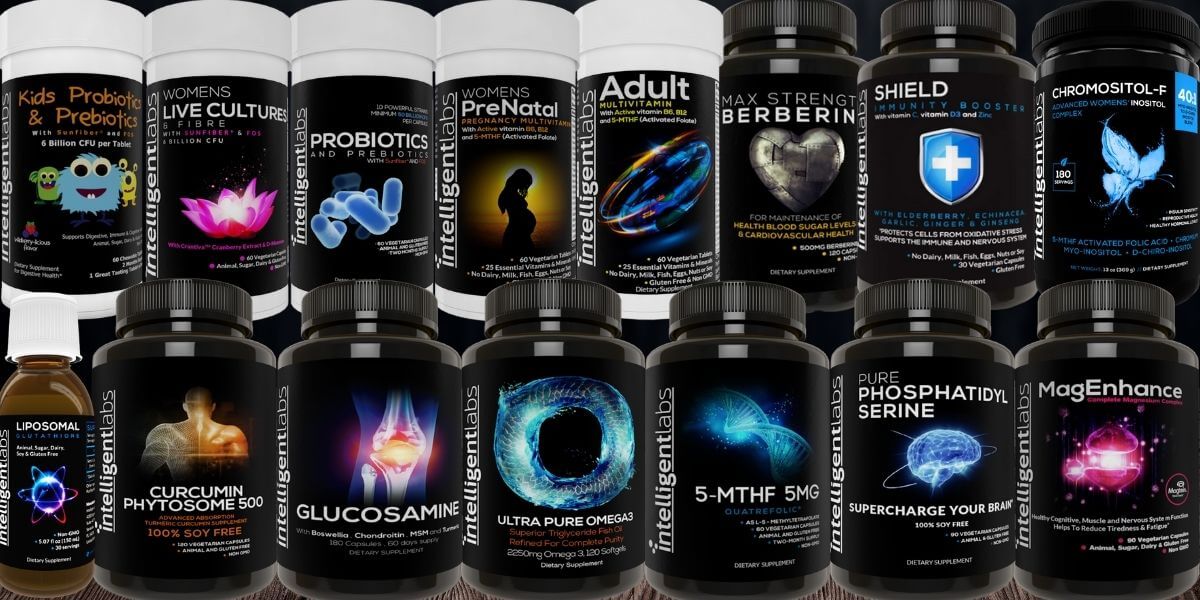Nutrition
Healthy Eating: Why Is Nutrition Important?
Food. We all love it. We literally can’t live without it. But did you know not all the food we put in our mouths is actually nutritious? In fact, many of our favorite comfort foods – french fries, ice cream, candy, and other processed foods – don’t offer much in terms of nutrition. Sure, they’re tasty, but nutrient-wise, not so much!
So, what happens if we don’t get the nutrients we need from the food we eat? Can we get it from some other source? And why is nutrition important anyway? Stay tuned as we answer all these questions – and more – in this blog post!
Table of Contents
Quality nutrition shouldn’t be optional
You need good nutrition if you want to live a long, healthy, and happy life. It’s hard to enjoy life if you’re sickly and not feeling a hundred percent all the time. This is because good nutrition helps your body go, grow, and glow!
So, what exactly does good nutrition mean?
Well, it means eating more of the right foods at the right portions. By the ‘right’ foods, I mean nutrient-dense foods from different food groups, such as:
- Protein-rich foods
- Grains
- Veggies
- Fruits
- Dairy
When you’re filling your body with all these healthy foods, you’re much less likely to stuff yourself with high-calorie, but nutritionally-empty, junk food, and drinks!
Good nutrition ultimately comes down to choice
Unfortunately, with modern food choices, it certainly seems like good nutrition is optional. Busy lifestyles tend to make us lazy when it comes to food. Many would prefer to eat whatever’s available, no matter how unhealthy it is.
Junk food and fast food are both cheap and accessible. You literally need zero preparation – just pay for it and you’re ready to eat.
On the other hand, healthy and nutritious foods are definitely on the more expensive side of things. They also need preparation, which means spending some time cooking it and making it palatable.
Unfortunately, a lot of people just don’t have the luxury of both money and time to prepare nutritious food, so they end up feeding themselves with junk food.

Why is nutrition important?
If you’ve spent most of your life eating an unhealthy diet, then you’ve got your work cut out for you. Undoing a lifetime of unhealthy eating habits won’t be easy, but for the sake of your health, it’s important to start ASAP (today if you can)! That said, to give you an idea of just how important good nutrition is, here are 10 notable benefits:
1) Nutrients contribute to vital bodily functions
Nutrients from the food we eat support the growth, maintenance, and repair of cells and tissues in the body. For instance, vitamin A is needed for healthy vision and Vitamin D helps support a healthy immune system. As you can imagine, a deficiency in an essential nutrient can lead to dire health consequences.
2) Improve cardiovascular health
Poor nutrition, coupled with a sedentary lifestyle, can lead to cardiovascular disease. Stay away from foods that have high levels of trans fat and saturated fat. These types of fat are considered “bad” because they raise your bad cholesterol level (LDL) and lower your good cholesterol levels (HDL).
3) Better nutrition leads to better immunity
We need better immunity now more than ever with a global pandemic currently raging on. Eating nutritious foods will help your body fight off viruses, bacteria, and other pathogens in your immediate surroundings.

4) Stay in shape and improve your weight
What you see on the weighing scale is a good indicator if you’re getting good enough nutrition. This is because malnutrition can go both ways. You can be thin and underweight or be overweight/obese and still suffer from malnutrition. By improving your diet, the number on the scale will either move up or down, depending on where your body needs to be at weight-wise.
5) Look better on the outside
Good nutrition has an impact on your outside appearance. For example, if you eat foods rich in healthy fats like fatty fish, avocados, nuts, and veggies, you’re more likely to have clearer and less acne-prone skin.
6) It helps slow down the ageing process
We’re all going to get old, but a healthy diet can slow down the ageing process! You don’t need to spend all your money on facial massages and skin tightening treatments, you simply need to start eating a clean and healthy diet to start seeing an improvement.
7) Healthy pregnancy
No matter your gender, if you’re thinking of having kids someday, then you need to be in great health. Otherwise, your fertility may be affected. Additionally, women are much more likely to have a successful pregnancy (by giving birth to a healthy, full-term baby) if they themselves are healthy.

8) Improve your mental health
Yes, the food you eat does have an effect on your overall mental health. For instance, did you know omega-3 fatty acids help promote a healthy brain? Omega-3 is abundant in fatty fish, so make sure you consume it as part of your diet. If you’re not a fan of fish and/or seafood, you may want to look into supplementing with our Ultra Pure Omega 3 Triglyceride Fish Oil.
9) Reduce risk of chronic disease
Living with a chronic disease is no fun, especially whenever its symptoms flare up. Fortunately, eating healthy can reduce the risk of developing chronic diseases.
But what if you’re already suffering from it?
Healthy eating can help manage your symptoms. For example, if you’re a type 2 diabetic, if you steer clear of high-carb foods that spike up your insulin levels, then you may be able to manage your diabetes (check out our CEO’s personal journey on the keto diet).
10) Good nutrition boosts your energy levels
By simply eating right, you’ll experience a renewed sense of vigor and energy. That’s because a healthy diet means you’re getting a good supply of energy-boosting macronutrients – carbohydrates, proteins, and unsaturated fats (this is the “good” kind of fat).

Your body needs these essential nutrients
The body needs 6 essential nutrients to function properly – protein, carbs, fat, water, vitamins, and minerals. They are divided into two categories: macronutrients and micronutrients.
1) Macronutrients
Our body requires larger quantities of these macronutrients (usually measured in grams). This type of nutrient provides the body with energy. There are 4 types of macronutrients:
- Protein
- Carbohydrates
- Fats
- Water
Here’s a table of the best food sources of macronutrients:
| Protein | Seafood, meat, poultry, eggs, nuts, seeds, dairy products |
| Carbohydrates | Whole grains, whole wheat, potatoes, legumes, corn, beans, fiber-rich fruits, starchy veggies |
| Fats | Fatty fish, eggs, nuts, seeds, avocados, olive oil, peanut oil, cheese, dairy |
| Water | Drinking water, cucumber, tomatoes, oranges, coconuts |
2) Micronutrients
Our body requires smaller quantities of micronutrients, these are usually measured in milligrams or micrograms. There are 2 types of micronutrients:
- Vitamins – there are 13 vitamins
* The 8 B-complex vitamins – B1, B2, B3, B5, B6, B7, B9, and B12
* Vitamins A, C, D, E, and K
- Minerals
* Major minerals – you need more of these than the trace minerals. A few examples include calcium, magnesium, sodium, and phosphorus.
* Trace minerals – these are still necessary but you don’t need them in huge quantities. Examples are iron, manganese, zinc, copper, iodine, selenium, and fluoride.
Here’s a table of the best food sources of micronutrients:
| Vitamin A | Liver, fish, carrots, broccoli, squash, fortified cereals |
| Vitamin C | Chili peppers, broccoli, kale, oranges, lemons, strawberries |
| Vitamin D | Liver, salmon, cod liver oil, red meat, egg yolks, fortified foods |
| Vitamin E | Almonds, sunflower seeds, hazelnuts, peanuts, avocado |
| Vitamin K | Kale, spinach, lettuce, broccoli, cauliflower, cabbage |
| B Vitamins | Liver, eggs, seafood, dairy, seeds, poultry, meat |
| Minerals | Nuts, seeds, organ meats, eggs, beans, shellfish, veggies |

Food vs supplements – what’s the best source of nutrients?
There are two ways to get good nutrition – food and supplements. Obviously, nature intended for us to get all of our essential nutrients from food. Different kinds of food contain a wide variety of nutrients, including non-essential ones (but still very beneficial) like flavonoids, carotenoids, and other phytochemicals.
As you can probably guess, food is a far more potent source of nutrients than any supplement out there! And obviously, no supplement will ever taste as good as any real food.
However, whilst supplements can’t ever replace food, there’s a reason for their existence. Let’s say you need to plug certain nutritional deficiencies, but you don’t have the means to a particular food source. Supplements can help you in this instance.
Depending on your needs, you may choose a single-nutrient supplement, or you may purchase a multi-nutrient supplement such as a multivitamin.
Who should consider taking dietary supplements?
While not everyone needs to take supplements, many people do. These include:
- People who don’t eat a healthy, balanced diet and may be deficient in some – or many – nutrients
- People with digestive issues who may have trouble absorbing important nutrients from food
- Older people who may have issues absorbing nutrients due to their age
- People who take certain medications which can prevent nutrient absorption

Choosing the right supplement
Dietary supplements are generally safe to take, however, it’s important to keep in mind that not all supplements are created equal. Before you consider taking any supplement, get professional advice first.
And if you’re thinking, why bother when you know several people who take supplements without ever speaking to a doctor… well, taking too much of certain nutrients can be a bad thing. For instance, excessive vitamin A can be toxic, too much calcium can lead to a condition known as hypercalcemia, and so on.
So, let someone qualified assess your individual need. Talk to your doctor, especially if you’re taking any medications, are pregnant or nursing. Additionally, you may also want to speak to a dietician or nutritionist about your nutritional intake.
Final thoughts
Now that you know why good nutrition is important, are you ready to start taking control of your diet? Begin your clean eating journey by making a commitment. Start by clearing out your pantry and throwing all the unhealthy junk food in the trash. Then replace them with whole and unprocessed foods. I know, it’s easier said than done. But if you can’t get nutrition from food, then supplements are the next best thing.




